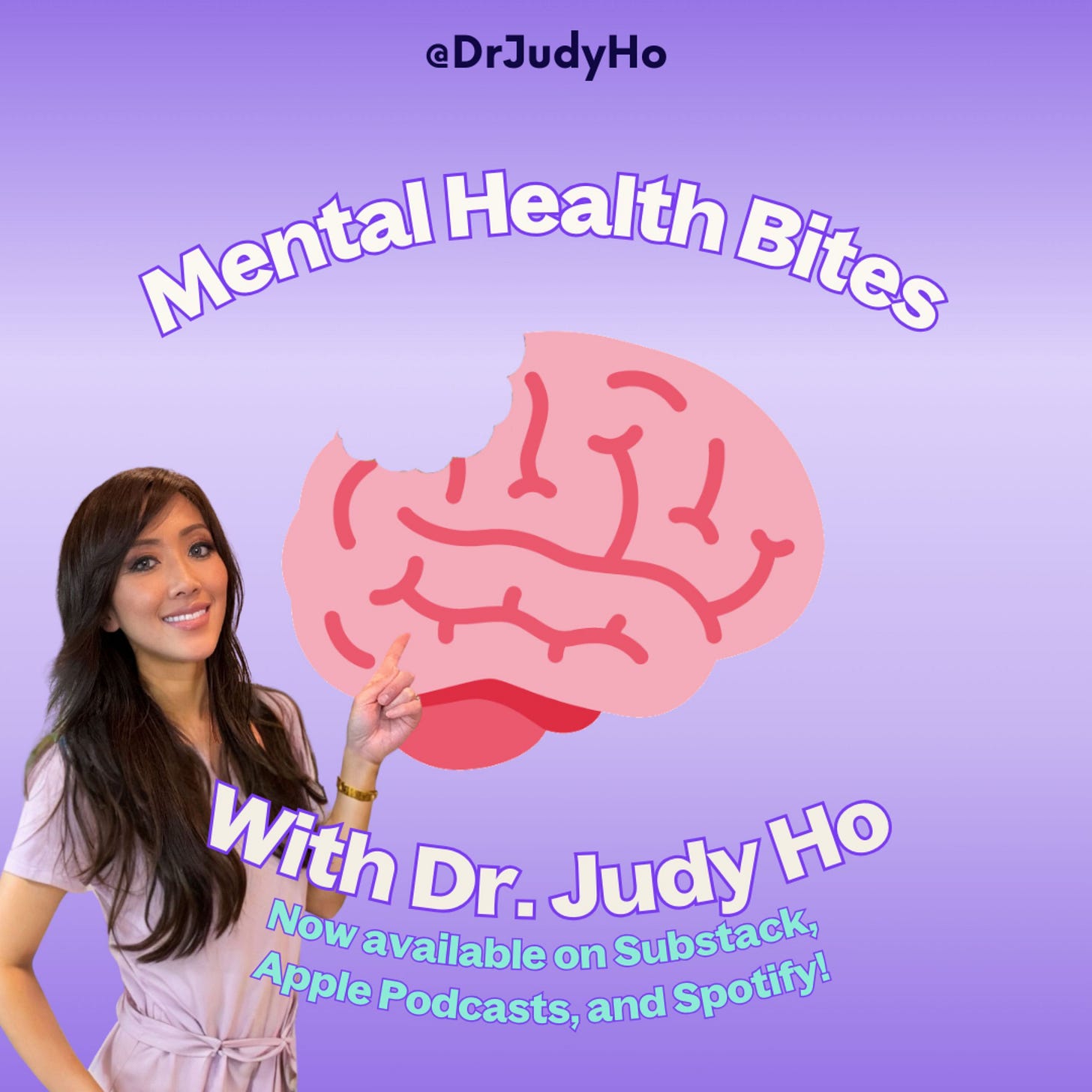
Are you a healthy skeptic? If so, you need to read this.
There are those out there who when they hear the phrase “positive psychology,” will roll their eyes and say, “that sounds like it’s a little too ‘pie in the sky.’ ”
I was one of those people.
Over the years, what was initially designed to embrace strengths and to combat the disease-based, deficits and problems-based approach that the field of psychology modeled itself after (i.e., medicine) in order to establish itself as a “hard” science” went a bit off the rails. It seemed proponents of positive psychology were saying that you should be positive at all times, against all odds - and that is not what Positive Psychology was designed to preach.
Thankfully, it’s more than possible to course correct. It is possible to experience positive psychology’s intended benefits without all toxic positivity - and I am a huge fan of using positive psychology in ways that will actually help rather than shame or discourage progress.
To learn how positive psychology can, well, positively impact your life, check out my most recent podcast episode right here in substack, on Apple, Spotify, or YouTube.
The Origin of Positive Psychology
At its core, positive psychology is about unearthing what makes life worth living. It focuses not just on what can go wrong with us, but also on what can go right. It asks questions like: How can we cultivate more happiness? How can we thrive, not just survive?
Questions like these represented a huge shift from the traditional focus of psychology, which primarily looked at mental illness, distress, and dysfunction. Positive psychology doesn't replace that important work, it complements it.
However, positive psychology isn't just about being happy all the time. Positive psychology is about cultivating strengths like resilience, gratitude, and mindfulness to help you navigate life's challenges. It's about understanding that well-being involves both positive emotions and the ability to deal with negative ones.
Where Positive Psychology Went Off the Rails
Somewhere along the way, the core message of positive psychology started to get warped, and toxic positivity entered the room.
Toxic positivity is the belief that you should always look on the bright side, no matter how bad things are. When the oversimplification that “only positive vibes” can solve everything becomes the expectation, it's not only unrealistic, but also harmful. It dismisses real emotions, real challenges, and real suffering. And pushing this constant positivity where sadness, anger, or frustration are all seen as weaknesses can actually increase shame and guilt because, guess what, life is hard. There are ups and downs, and trying to force constant positivity can make people feel like they're failing when they're not.
If you're going through something really rough, like the loss of a loved one, being told to just think positive can feel dismissive and alienating. It makes it seem like your pain isn't valid. And that's not helpful. In fact, research shows that denying or suppressing negative emotions can actually make them stronger, leading to more anxiety or even depression.
So, how do we fix this?
The key is balance. It's about embracing the full human experience. Positive psychology, when used correctly, acknowledges both the highs and the lows. It's not about ignoring the hard stuff. It's about recognizing that negative emotions serve a function. They alert us to problems. They push us to grow. They help us to survive. They're what makes us human.
Positive psychology is not about plastering a smile over a difficult situation. It's about developing resilience. Positive psychology can help give us the tools and develop the habits needed to navigate these challenges and bounce back, even when things are tough.
How to Use Positive Psychology in a Way that Works for You

One great way to use positive psychology as it was intended is to take small, manageable steps that fit your reality. One way to do this is through one of my favorite exercises, “Develop a Virtue.” This is a core practice in positive psychology that can make a real tangible difference in your life.
Step 1 | Choose a Virtue. Choose one of the following virtues that positive psychology research has identified can improve an area of your life. Pick one virtue that resonates with you and feels the most meaningful. Here are some examples.
Wisdom and Knowledge. This virtue involves cognitive strengths that center around the acquisition and use of knowledge. It emphasizes the thoughtful application of intelligence, experience, and learning in practical and meaningful ways.
Courage. Courage is a virtue that focuses on emotional strengths that help individuals exercise willpower to achieve goals in the face of challenges. It involves the ability to persist despite adversity, fear, or difficulty.
Humanity. Humanity encompasses interpersonal strengths that focus on caring relationships and tending to others. This virtue is about compassion, love, and kindness directed toward others, fostering strong, positive connections.
Justice. Justice focuses on civic strengths that underlie healthy community or group dynamics. It’s about promoting fairness, equity, and working toward the common good, ensuring that everyone is treated with respect.
Temperance. Temperance is about strengths that protect against excess. This virtue promotes self-regulation and control, helping individuals manage their emotions, behaviors, and desires to live in balance and moderation.
Transcendence. Transcendence refers to strengths that connect individuals to something larger than themselves, promoting a sense of purpose, meaning, and a deeper appreciation of life’s experiences.
Step 2 | Set a small, specific goal. Think about a small goal that you can work on around this selected virtue. Whatever virtue you choose, your goal should be small enough that it feels doable, but meaningful enough that it challenges you to grow. The idea is to start simply. You're not going to master a virtue overnight. If your virtue is kindness, for example, make it a goal to perform one small act of kindness each day. It could be something as simple as sending a thoughtful text to a friend, holding the door for someone, or giving a compliment.
Step 3 | Reflect and adjust. After you've set your goal, take the time at the end of each week to reflect. Ask yourself: Did I stick to my goal most days? How did practicing this virtue affect my mood, relationships, or work? What felt challenging? What felt rewarding?
It’s okay if things didn’t go as planned. Just adjust your goal if needed. Maybe doing one act of kindness every day was too much, so maybe you'll decide to scale it back to three times a week. You can even switch to a different virtue if you’d like. The important thing is to keep going and not to judge yourself if you sometimes fall short, because that’s something all of us do.
If you found this helpful, I hope you share it with someone who you think will benefit from it. And if you want to learn about even more activities you can try to help develop your chosen virtue, give my most recent podcast a watch.
Order The New Rules of Attachment here: https://bit.ly/3MvuvvF
Take my Attachment Styles Quiz!
About me:
Dr. Judy Ho, Ph. D., ABPP, ABPdN is a triple board certified and licensed Clinical and Forensic Neuropsychologist, a tenured Associate Professor at Pepperdine University, television and podcast host, and author of Stop Self-Sabotage. An avid researcher and a two-time recipient of the National Institute of Mental Health Services Research Award, Dr. Judy maintains a private practice where she specializes in comprehensive neuropsychological evaluations and expert witness work. She is often called on by the media as an expert psychologist and is also a sought after public speaker for universities, businesses, and organizations.
Dr. Judy received her bachelor's degrees in Psychology and Business Administration from UC Berkeley, and her masters and doctorate from SDSU/UCSD Joint Doctoral Program in Clinical Psychology. She completed a National Institute of Mental Health sponsored fellowship at UCLA's Semel Institute.















Share this post